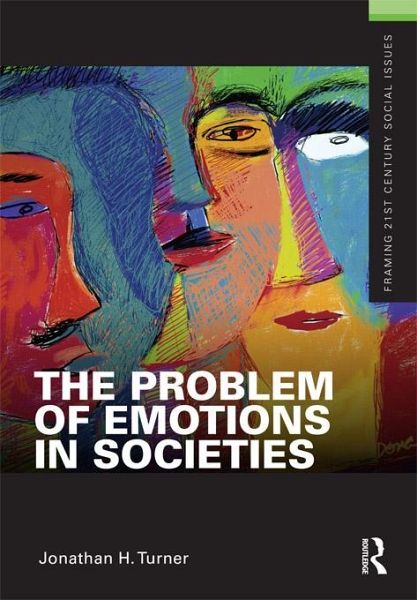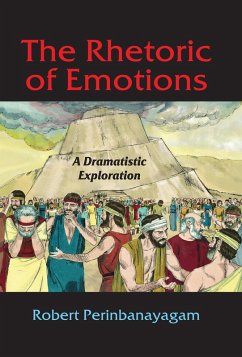
The Problem of Emotions in Societies (eBook, PDF)

PAYBACK Punkte
18 °P sammeln!
Like any other valued resource, emotions are distributed unequally. Moreover, emotions are a generalized resource because they give people the confidence, or lack of confidence, to secure additional types of resources. Thus, this distribution of emotions roughly corresponds to the shares of others kinds of resources that members of various social classes possess. The level of positive and negative emotional energy evident among members of different social classes has large consequences for the viability of human societies. When a large majority of members in diverse social classes have reservo...
Like any other valued resource, emotions are distributed unequally. Moreover, emotions are a generalized resource because they give people the confidence, or lack of confidence, to secure additional types of resources. Thus, this distribution of emotions roughly corresponds to the shares of others kinds of resources that members of various social classes possess. The level of positive and negative emotional energy evident among members of different social classes has large consequences for the viability of human societies. When a large majority of members in diverse social classes have reservoirs of positive emotional energy, these emotions work to legitimate macrostructures and to build people's commitments to societies. When, however, significant numbers of persons in lower social classes, and at times in middle to upper social classes as well, reveal reservoirs of negative emotional energy, they are likely to de-legitimate key institutional systems and, under specifiable conditions, mobilize collective-often with violent outcomes. Thus, emotions are at the core of both integrative and disintegrative forces in societies, and when large reservoirs of negative emotional energy exist, they pose a problem for societies.
The goal of this new, unique Series is to offer readable, teachable "thinking frames" on today's social problems and social issues by leading scholars, all in short 60 page or shorter formats, and available for view on http://routledge.customgateway.com/routledge-social-issues.html
For instructors teaching a wide range of courses in the social sciences, the Routledge Social Issues Collection now offers the best of both worlds: originally written short texts that provide "overviews" to important social issues as well as teachable excerpts from larger works previously published by Routledge and other presses.
The goal of this new, unique Series is to offer readable, teachable "thinking frames" on today's social problems and social issues by leading scholars, all in short 60 page or shorter formats, and available for view on http://routledge.customgateway.com/routledge-social-issues.html
For instructors teaching a wide range of courses in the social sciences, the Routledge Social Issues Collection now offers the best of both worlds: originally written short texts that provide "overviews" to important social issues as well as teachable excerpts from larger works previously published by Routledge and other presses.
Dieser Download kann aus rechtlichen Gründen nur mit Rechnungsadresse in A, B, BG, CY, CZ, D, DK, EW, E, FIN, F, GR, HR, H, IRL, I, LT, L, LR, M, NL, PL, P, R, S, SLO, SK ausgeliefert werden.













